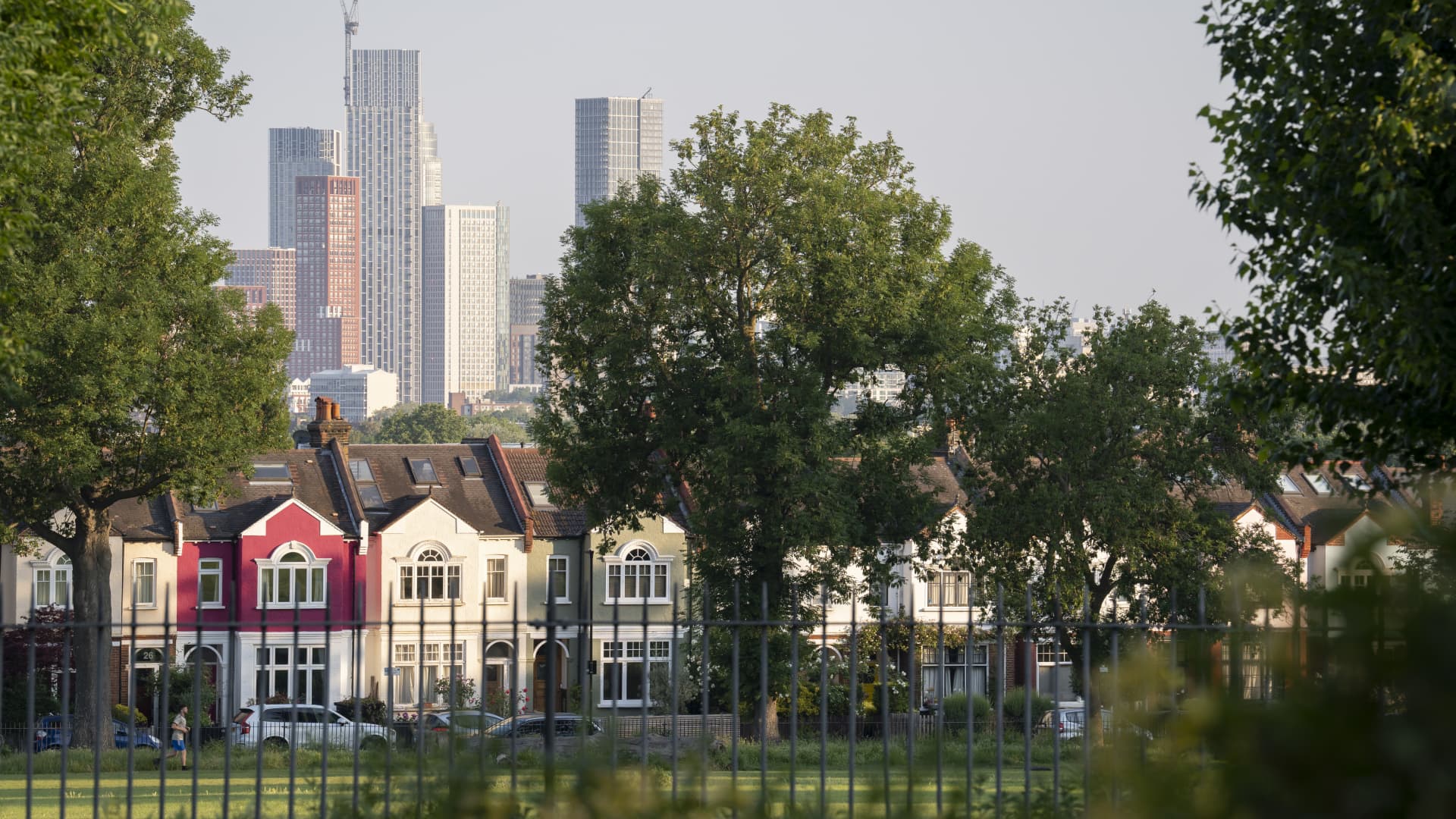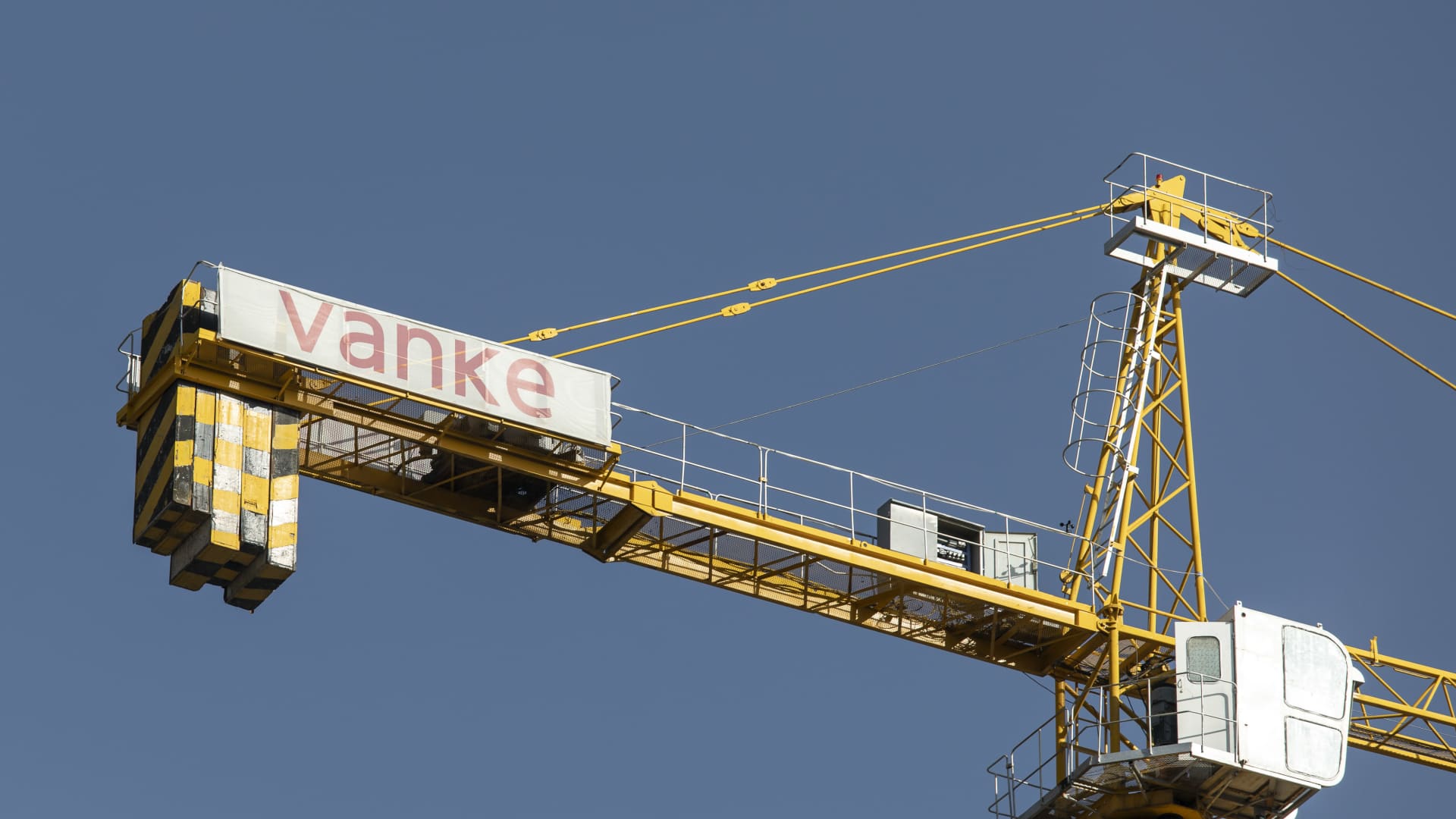Singapore’s mortgage costs are rising — but some buyers are shrugging off higher rates

Blocks of condominiums in Singapore. The rising cost of borrowing is unlikely to have a major impact on Singapore’s property market, analysts told CNBC.
Ore Huiying | Bloomberg | Getty Images
SINGAPORE — The rising cost of borrowing is unlikely to have a major impact on Singapore’s property market, analysts told CNBC.
That’s because of several factors such as wealthy buyers, strong rental demand and foreigners moving to Singapore.
Singapore’s real estate market is backed by wealth, according to Christine Li, head of Asia-Pacific research at Knight Frank. That means it’s similar to markets such as Shanghai and Beijing, where a lot of people buy properties with a small loan or without borrowing at all, she told CNBC over the phone.
Countries like Australia and New Zealand have a different dynamic, she added. In those markets, “people buy their homes because of income growth, so when interest rates start to hike, you can see that the reaction … is a lot more immediate.”
[The] interest rate is not going to be a determining factor for prices to come down.
Christine Li
head of Asia-Pacific research, Knight Frank
Fixed home loan rates from Singapore’s major banks have climbed as high as 3.85%, according to local media reports.
But in wealth-backed markets like Singapore, interest rates don’t “move the needle,” Li said, “because these people in the first place don’t even rely on borrowing to fund these homes.”
One property agent told CNBC last year that all-cash offers were on the rise at that time.
Interest rates are “not going to be a determining factor for prices to come down,” Li said. “I think you need something that is a lot stronger, especially from the macro side, for people to realize that entering a market at this kind of price level may not give them the returns they want.”
Christine Sun, senior vice president of research and analytics at OrangeTee and Tie, said buyers in the top wealth bracket in Singapore have enough money to fund their house purchases, or can redeploy capital to pay for their loans.
“Foreign investors may continue to buy properties here as they consider our mortgage rates to be lower than other countries and our strong Sing dollar can help preserve the value of their investment,” she said.
Demand drivers
However, it doesn’t mean the residential property market ignores rising rates and looming risks, said Alan Cheong, executive director of research and consultancy at Savills.
There are other factors causing prices to continue “powering on,” seemingly defiant of economic logic, he added.
Private residential property prices are still on an upward trend, and increased 3.4% in the third quarter this year compared to the previous quarter, according to flash data from the Urban Redevelopment Authority of Singapore.
Demand for housing is also supported by strong household balance sheets and sustained income growth, Sun said.
The safe haven status of Singapore and her acceptance of relevant talents have been attracting high income foreigners who can easily outbid locals in residential real estate.
Alan Cheong
executive director of research and consultancy at Savills
Cooling measures
New measures introduced by the government a few weeks ago will likely have a dampening effect on the market but they will be temporary, analysts said.
The measures include tighter limits on loans and a 15-month wait-out period for certain private homeowners who want to downgrade to public apartments.
That wait-out period could affect sales of public flats, which in turn, could cause a pull back in demand for suburban condos, said Sun from OrangeTee.
“However, past trends indicate that our property market is highly resilient and usually rebounds within six months of a cooling measure,” she said.
Cheong said intervention by the government has not been overly restrictive nor has it run ahead of the demand curve.
“All it did was to disorientate the potential market participants into deferring their purchase,” he said, adding that buyers would eventually re-enter the market “with a vengeance,” leading to another round of property cooling measures.
On the supply side, there is usually a lag when demand rises, Cheong said. That means prices will be sticky, or even increase as demand returns.
Overall outlook
Real estate prices are expected to continue increasing, though at a slower pace than in 2021, Sun said.
“We estimate that overall private home prices will still rise 7-9% this year,” she said.
Knight Frank’s Li said strong growth in rents could improve sentiment in the overall market, and support demand from both investors and those who buy homes to live in.
“From owner occupiers, I think the low unemployment rate and also the relocations of a lot of expatriates … these people may be able to support the residential market either from the rental front or from the pricing front,” she added.








